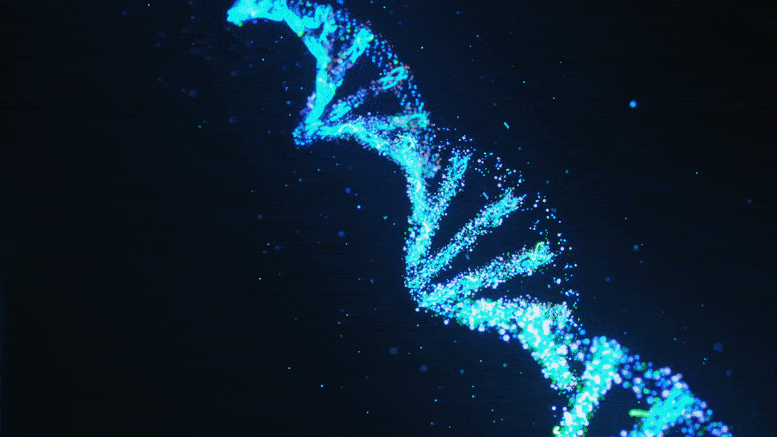
Rewriting Our Understanding of Epigenetics: Scientists Reveal We Inherit More Than Previously Thought
- BiotechnologyInternational News
- No Comment
- 399
The discovery indicates that epigenetic inheritance could occur more frequently than previously believed.
A fundamental discovery concerning a driver of healthy development in embryos might rewrite our understanding of what we can inherit from our parents and how their life experiences shape us. The new study reveals that epigenetic information, which sits on top of
Epigenetic tags (orange and blue) on inactive DNA. Researchers say epigenetic tags could be passed onto offspring more often than previously thought. Credit: Still from WEHI.TV’s animation “X Inactivation and Epigenetics” by Etsuko Uno
Despite the fact that a small subset of “imprinted” genes may pass epigenetic information down the generations, relatively few other genes have up to this point been shown to be influenced by the mother’s epigenetic state. According to recent research, the supply of a certain protein in the mother’s egg may have an impact on the genes that drive the skeletal patterning of children.
Chief investigator Professor Marnie Blewitt said the findings initially left the team surprised.
“It took us a while to process because our discovery was unexpected,” Professor Blewitt, Joint Head of the Epigenetics and Development Division at WEHI, said. “Knowing that epigenetic information from the mother can have effects with life-long consequences for body patterning is exciting, as it suggests this is happening far more than we ever thought. It could open a Pandora’s box as to what other epigenetic information is being inherited.”
The study, led by WEHI in collaboration with Associate Professor Edwina McGlinn from Monash University and The Australian Regenerative Medicine Institute, was recently published in the journal Nature Communications.
Astonishing discovery
The current research concentrated on the Hox genes, which are essential for normal skeletal development, and the protein SMCHD1, an epigenetic regulator discovered by Professor Blewitt in 2008. During embryonic development in mammals, Hox genes determine the identity of each vertebra, while the epigenetic regulator prevents these genes from being activated too early.
According to the findings of this study, the quantity of SMCHD1 in the mother’s egg impacts the activity of the Hox genes and the patterning of the embryo. Without maternal SMCHD1 in the egg, children were born with altered skeletal structures.
This is clear proof, according to the first author and Ph.D. researcher Natalia Benetti, that epigenetic information rather than only blueprint genetic information was passed from the mother.
“While we have more than 20,000 genes in our genome, only that rare subset of about 150 imprinted genes and very few others have been shown to carry epigenetic information from one generation to another,” Benetti said.
Reference: “Maternal SMCHD1 regulates Hox gene expression and patterning in the mouse embryo” by Natalia Benetti, Quentin Gouil, Andres Tapia del Fierro, Tamara Beck, Kelsey Breslin, Andrew Keniry, Edwina McGlinn and Marnie E. Blewitt, 25 July 2022, Nature Communications.
DOI: 10.1038/s41467-022-32057-x
The study was funded by the NHMRC, a Bellberry-Viertel Senior Medical Research fellowship, the Victorian Government, and the Australian Government.
By
https://scitechdaily.com/rewriting-our-understanding-of-epigenetics-scientists-reveal-we-inherit-more-than-previously-thought/



